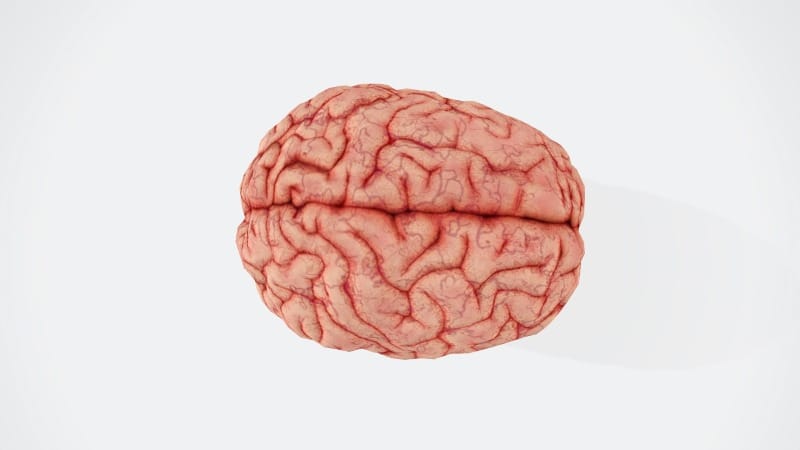Alzheimer's disease, a devastating neurological condition that affects millions worldwide, has long been considered irreversible. However, a groundbreaking new study offers a glimmer of hope for both prevention and potential reversal of this debilitating illness. This discovery could revolutionize how we approach Alzheimer's treatment and care.
Key Takeaways:
- Researchers have identified a new treatment method that shows promise in reversing and preventing Alzheimer's disease.
- The study focuses on targeting specific proteins that accumulate alongside amyloid beta in the brain.
- This approach offers a fresh perspective on Alzheimer's development and potential treatment strategies.
- While still in early stages, this research provides new hope for millions affected by Alzheimer's worldwide.
- The findings could lead to novel therapies not just for Alzheimer's, but for other amyloid-related disorders as well.
A New Understanding of Alzheimer's Disease
For decades, scientists have focused on amyloid beta plaques as the primary culprit in Alzheimer's disease. These sticky protein accumulations have long been thought to directly cause the brain cell damage and cognitive decline associated with the condition. However, a groundbreaking study from Emory University has shed new light on this process, potentially revolutionizing our approach to Alzheimer's treatment[8].
The Amyloid Scaffold Theory
The research team, led by Todd E. Golde and Yona Levites, has proposed a new hypothesis about how Alzheimer's develops. Instead of amyloid beta directly causing damage, they suggest that these plaques act as a scaffold for other proteins to accumulate[8]. This accumulation of additional proteins around the amyloid deposits may be the real cause of brain cell damage.
Using cutting-edge analytical technologies, the researchers identified over 8,000 proteins in human brains affected by Alzheimer's and in mouse models. They discovered more than 20 proteins that consistently co-accumulate with amyloid beta in both human and mouse brains[8].
Key Proteins: Midkine and Pleiotrophin
Among the proteins identified, the researchers focused on two in particular: midkine and pleiotrophin. Their experiments showed that these proteins can accelerate amyloid aggregation both in laboratory settings and in living mice[8]. This finding suggests that these additional proteins may play a crucial role in the progression of Alzheimer's disease.
Implications for Treatment and Prevention
This new understanding of Alzheimer's disease opens up exciting possibilities for treatment and prevention strategies. By targeting these newly identified proteins, researchers may be able to develop therapies that could slow, stop, or even reverse the progression of Alzheimer's.
Potential for Novel Therapies
The discovery of these co-accumulating proteins provides new targets for drug development. Instead of focusing solely on reducing amyloid beta, future treatments might aim to prevent or reduce the accumulation of these other proteins[8]. This approach could potentially be more effective in preserving brain function and slowing cognitive decline.
Broader Applications
Importantly, this research may have implications beyond Alzheimer's disease. The researchers note that multiple types of amyloid buildup have been implicated in over 30 human disorders affecting various tissues and organs throughout the body[8]. The insights gained from this study could potentially lead to new approaches for treating these conditions as well.
The Road Ahead: Challenges and Opportunities
While this research represents a significant breakthrough, it's important to note that we are still in the early stages of understanding these processes. Translating these findings into effective treatments will require extensive further research and clinical trials.
Ongoing Research
The Emory University team is continuing their work, expecting to identify even more proteins that co-accumulate with amyloid beta[8]. Each of these proteins could represent a potential target for future therapies.
Complexity of Alzheimer's Disease
This study underscores the complexity of Alzheimer's disease. As the researchers note, "The initial notion of a purely linear amyloid cascade is now recognized as simplistic. Studies have unveiled the vast complexity of changes occurring over decades in the brains of individuals as Alzheimer's pathologies emerge"[8]. This complexity highlights the need for multifaceted approaches to treatment and prevention.
Hope for Patients and Families
For the millions of people affected by Alzheimer's disease worldwide, this research offers new hope. While we are still years away from potential new treatments based on these findings, the discovery provides a fresh direction for research and drug development.
Improved Understanding Leads to Better Care
Even before new treatments are developed, this improved understanding of Alzheimer's disease can inform better care strategies. By recognizing the complex interplay of proteins involved in the disease process, healthcare providers can take a more holistic approach to managing the condition.
Empowering Prevention Efforts
The potential for prevention highlighted by this research is particularly exciting. If we can identify individuals at risk for Alzheimer's and intervene before significant protein accumulation occurs, we may be able to delay or even prevent the onset of the disease.
Conclusion: A New Chapter in Alzheimer's Research
This groundbreaking study marks a significant milestone in our understanding of Alzheimer's disease. By shifting our focus from amyloid beta alone to the complex interplay of multiple proteins, researchers have opened up new avenues for treatment and prevention.
While there is still much work to be done, this discovery provides renewed hope for patients, families, and healthcare providers. As research continues, we move closer to a future where Alzheimer's disease may no longer be an irreversible sentence, but a condition that can be effectively managed, prevented, and potentially even reversed.
For now, it's important for individuals to continue focusing on known strategies for maintaining brain health, such as regular exercise, a healthy diet, social engagement, and cognitive stimulation. As we await further developments from this promising line of research, these lifestyle factors remain our best defense against cognitive decline.
The journey to conquer Alzheimer's disease is far from over, but with each breakthrough like this, we take significant steps forward. The future of Alzheimer's treatment looks brighter than ever, offering hope to millions around the world affected by this challenging condition.












Member discussion